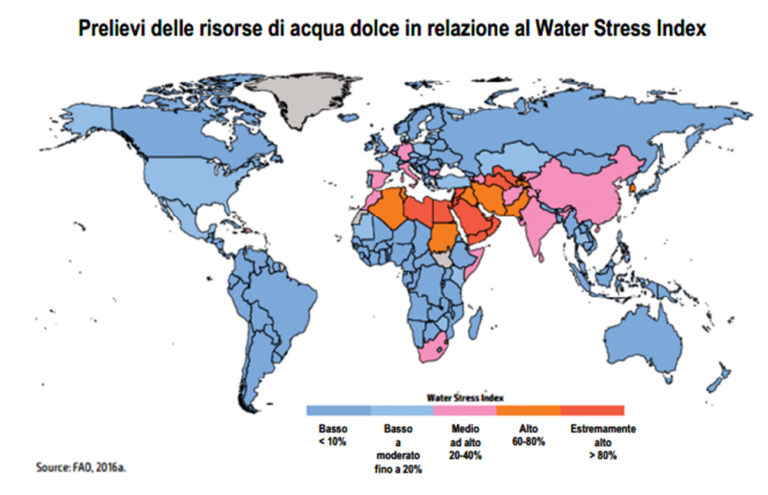Over-the-Counter Birth Control: Increased Access And Its Implications

Table of Contents
Increased Access and its Potential Benefits
The prospect of OTC birth control offers several significant advantages, impacting convenience, affordability, and women's reproductive health.
Improved Convenience and Affordability
One of the most significant benefits of OTC birth control is the improved convenience and affordability it offers. Currently, accessing prescription birth control often involves scheduling appointments, navigating insurance coverage, and potentially facing significant costs. OTC birth control could eliminate these barriers.
- Reduced appointment wait times: No more waiting weeks for an appointment with a doctor.
- Lower overall cost: Eliminates the cost of doctor visits, prescriptions, and transportation.
- Increased spontaneity of purchasing: Individuals can purchase birth control when and where it's convenient, much like other OTC medications.
This increased accessibility is particularly crucial for marginalized communities who may face significant barriers to healthcare access, such as those with limited income, transportation challenges, or those residing in rural areas. For these individuals, OTC birth control represents a vital step towards greater reproductive autonomy.
Empowering Women's Reproductive Health
OTC birth control empowers women to take control of their reproductive health. Self-managing contraception allows for greater autonomy and decision-making power.
- Greater control over their bodies: Women can make choices about their reproductive health without needing to rely on a healthcare provider’s availability or approval.
- Improved ability to plan pregnancies: Easy access to contraception allows for better family planning and reduces the likelihood of unintended pregnancies.
- Potential to reduce stigma around contraception: Increased accessibility may help normalize contraception use and reduce the stigma often associated with it.
Potential Public Health Impact
The wider availability of OTC birth control holds the potential to significantly improve public health outcomes.
- Reduced rates of unintended pregnancies: Easier access to contraception could lead to a substantial decrease in unintended pregnancies.
- Potential for a decrease in abortions: By preventing unintended pregnancies, OTC birth control could indirectly reduce the number of abortions.
- Reduced strain on healthcare systems: Fewer unintended pregnancies translate to less demand on healthcare resources for prenatal care, childbirth, and postpartum care.
The overall impact could include improved maternal and child health outcomes and significant cost savings associated with fewer unintended pregnancies for both individuals and the healthcare system.
Potential Drawbacks and Concerns
While the benefits of OTC birth control are considerable, several potential drawbacks and concerns must be addressed.
Misinformation and Misuse
One significant concern is the potential for misinformation and misuse of OTC birth control. Without proper medical guidance, individuals may use birth control incorrectly, leading to unintended pregnancies or other health issues.
- Potential for improper dosage: Incorrect dosage can render the medication ineffective.
- Failure to understand contraindications: Certain health conditions may make some forms of birth control unsuitable or even dangerous.
- Increased risk of adverse effects: Ignoring potential side effects or not seeking medical attention when necessary can lead to complications.
Clear and accessible information on proper usage, potential side effects, and contraindications is paramount to mitigate these risks.
Access to Comprehensive Healthcare
The shift to OTC birth control should not replace the importance of regular checkups and consultations with healthcare providers. Overlooking underlying health conditions could have serious consequences.
- Need for regular checkups: Routine health checkups are crucial for monitoring overall health and addressing any potential issues.
- Potential for undetected health issues: OTC birth control access shouldn't replace necessary medical consultations for underlying conditions.
- Importance of ongoing medical advice: Access to healthcare professionals ensures personalized advice and support regarding contraception choices.
Equity and Accessibility Concerns
Ensuring equitable access to OTC birth control is critical to avoid exacerbating existing health disparities.
- Addressing affordability issues: While OTC birth control aims for affordability, strategies are necessary to ensure it remains accessible to low-income individuals.
- Improving access in underserved communities: Increased efforts are needed to distribute OTC birth control effectively in areas with limited healthcare resources.
- Ensuring access to information in multiple languages: Educational materials must be available in multiple languages to ensure understanding among diverse populations.
Regulatory and Policy Implications
The successful implementation of OTC birth control requires careful consideration of regulatory and policy implications.
The Role of Regulatory Bodies
Regulatory bodies like the FDA play a vital role in ensuring the safety and efficacy of OTC birth control.
- FDA approval process: Rigorous testing and approval processes are essential before OTC birth control is made available.
- Safety standards: Stringent safety standards must be met to ensure the medication's safety and effectiveness.
- Ongoing monitoring of potential adverse effects: Post-market surveillance is crucial to identify and address any unexpected side effects.
Public Health Campaigns and Education
Comprehensive public health campaigns are necessary to educate the public about the proper use and potential risks associated with OTC birth control.
- Public awareness campaigns: Campaigns should focus on responsible use, potential side effects, and when to seek medical attention.
- Accessible educational materials: Providing clear and concise information in various formats (brochures, websites, videos) is crucial.
- Providing accurate information in various formats: Tailoring information to diverse audiences and using accessible language ensures effective communication.
Conclusion
The debate surrounding over-the-counter birth control highlights a crucial need for informed discussion and responsible implementation. While increased access to over-the-counter birth control offers significant potential benefits, including improved convenience, affordability, and empowerment of women's reproductive health, careful consideration of potential drawbacks, such as misinformation and misuse, is essential. Further research, accessible education, and equitable policies are essential to ensure that increased access to over-the-counter birth control truly improves reproductive health outcomes for all. We must strive for a future where responsible access to over-the-counter birth control empowers individuals and strengthens public health.

Featured Posts
-
 Obnovlenniy Prognoz N Kh L Ovechkin I Rekord Grettski
May 16, 2025
Obnovlenniy Prognoz N Kh L Ovechkin I Rekord Grettski
May 16, 2025 -
 Rays Complete Sweep Of Padres Real Radio 104 1 Recap
May 16, 2025
Rays Complete Sweep Of Padres Real Radio 104 1 Recap
May 16, 2025 -
 Score Big Boston Celtics Finals Gear Under 20
May 16, 2025
Score Big Boston Celtics Finals Gear Under 20
May 16, 2025 -
 In Depth La Lakers Coverage On Vavel United States
May 16, 2025
In Depth La Lakers Coverage On Vavel United States
May 16, 2025 -
 Microplastiche In Quale Tipo Di Acqua Sono Piu Presenti
May 16, 2025
Microplastiche In Quale Tipo Di Acqua Sono Piu Presenti
May 16, 2025
